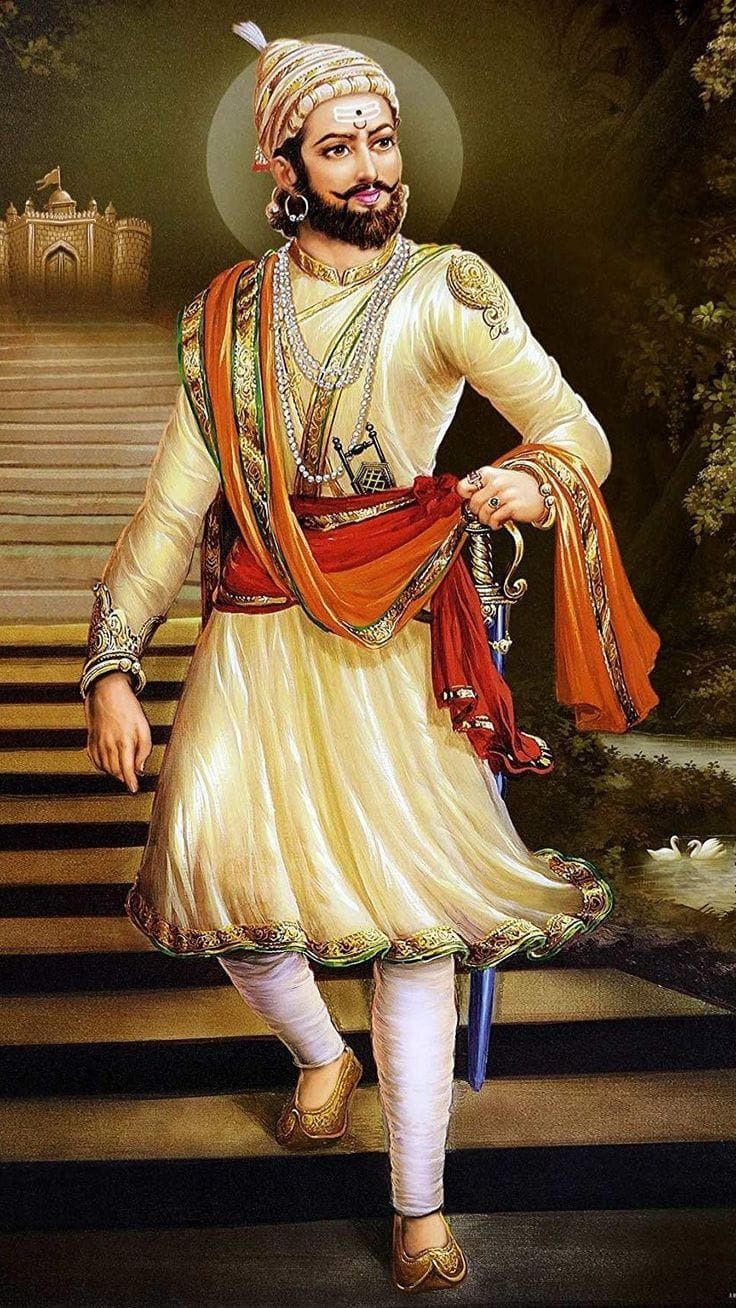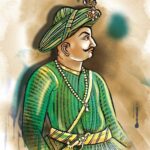Chhatrapati Shivaji Maharaj: History, Legacy, and Inspiring Facts
Chhatrapati Shivaji Maharaj is one of India’s most revered historical figures, celebrated as a brave and visionary leader who laid the foundation of the Maratha Empire. His life, values, and legacy continue to inspire millions, embodying principles of courage, justice, and self-reliance. Let’s explore the life of Shivaji Maharaj and understand his lasting significance.
Early Life and Background: Chhatrapati Shivaji Maharaj
Chhatrapati Shivaji Maharaj was born on February 19, 1630, at Shivneri Fort, near Pune, Maharashtra. His parents, Shahaji Bhosale and Jijabai, played a pivotal role in shaping his personality. Jijabai, known for her wisdom and spirituality, instilled in Shivaji a sense of righteousness and devotion to the motherland.
From an early age, Shivaji displayed exceptional leadership qualities. Growing up in the rugged terrains of the Western Ghats, he developed strategic and military skills that would later define his remarkable campaigns.
A Visionary Leader: Chhatrapati Shivaji Maharaj
Shivaji Maharaj founded the Maratha Empire in the mid-17th century, challenging the dominance of the Mughal Empire and other regional powers. He envisioned a kingdom rooted in Swarajya (self-rule), emphasizing governance by and for the people.
Some key highlights of his leadership include:
- Fortifications: Shivaji built and strategically utilized forts like Raigad, Torna, and Sinhagad, ensuring the Maratha Empire’s stronghold in western India.
- Navy Establishment: Recognizing the importance of naval power, he created a strong navy to safeguard coastal regions, making him one of the few Indian rulers to achieve maritime dominance.
- Innovative Warfare: Shivaji pioneered guerrilla warfare tactics, using the terrain to outmaneuver larger armies.
- Administrative Reforms: He implemented a fair tax system, promoted regional languages like Marathi, and ensured justice for all, irrespective of caste or creed.
Daily Life and Values: Chhatrapati Shivaji Maharaj
Shivaji Maharaj’s daily life reflected discipline, simplicity, and devotion to his people. He was deeply spiritual, often seeking guidance from saints and scholars. A strong advocate of women’s rights, Shivaji ensured their safety in his kingdom and strictly prohibited the mistreatment of women in his armies.
He spent his mornings discussing state affairs with his ministers, reviewing military strategies, and meeting with representatives of his people. Even as a king, he was accessible and empathetic to the needs of his subjects.
Impact on Society and History: Chhatrapati Shivaji Maharaj
Shivaji Maharaj’s contributions extend far beyond his military conquests:
- Unity and Identity: He united disparate communities under the Maratha banner, fostering a sense of identity and pride among the people.
- Empowerment: His governance uplifted farmers, artisans, and traders, creating an economically and socially balanced society.
- Religious Harmony: Despite being a devout Hindu, Shivaji respected all religions, promoting harmony in his kingdom.
Observance and Celebrations: Chhatrapati Shivaji Maharaj
Shivaji Maharaj’s birth anniversary, celebrated as Shiv Jayanti, is a grand occasion in Maharashtra and other parts of India. Cultural programs, processions, and speeches honor his legacy. His forts and monuments, like Raigad and Pratapgad, are pilgrimage sites for those seeking inspiration.
Interesting Facts About Chhatrapati Shivaji Maharaj
- Coronation as Chhatrapati: Shivaji was formally crowned as Chhatrapati (emperor) in 1674 at Raigad Fort, symbolizing the sovereignty of the Maratha Empire.
- Escape from Agra: In a daring move, he escaped from house arrest in Agra by hiding in fruit baskets, showcasing his brilliance and courage.
- First Indian Naval Force: Shivaji is considered the father of the Indian Navy for establishing a robust maritime defense.
- Forts Legacy: He controlled over 300 forts, each strategically positioned and fortified.
- Respect for Women: His armies were strictly instructed to uphold the dignity of women, a principle he deeply valued.
FAQs About Chhatrapati Shivaji Maharaj
1. Why is Shivaji Maharaj called the “Father of the Indian Navy”?
He recognized the importance of maritime security and established a navy to protect India’s coastline, a visionary step in his time.
2. What was Shivaji’s greatest achievement?
The establishment of Swarajya and his ability to challenge the Mughal Empire with limited resources is considered his most significant achievement.
3. How did Shivaji promote inclusivity?
Shivaji recruited people from all communities and treated everyone equally, fostering a sense of unity and belonging.
Significance in Modern Society; Chhatrapati Shivaji Maharaj
Shivaji Maharaj’s life teaches us the value of self-reliance, strategic thinking, and empathy. His ideals of governance, inclusivity, and justice remain relevant in today’s world. By following his principles, societies can strive for progress while maintaining harmony and equity.
Wishing Shivaji’s Legacy Forward: Chhatrapati Shivaji Maharaj
Chhatrapati Shivaji Maharaj’s legacy is not confined to history books. It lives on in the hearts of millions who draw strength and inspiration from his life. Wishing to honor his memory means embracing his values of courage, justice, and compassion.
Final Thoughts: Chhatrapati Shivaji Maharaj
Chhatrapati Shivaji Maharaj was more than a warrior; he was a visionary who redefined leadership. His unwavering commitment to Swarajya, his people, and his principles has earned him a place among the greatest leaders in history.











For a comfortable and affordable airport transfer experience, choose Black Tie Transport’s shuttle service from Rancho Cucamonga to LAX. Offering LAX shuttle services, luxury car options, and private car services, their transportation services to LAX ensure reliable and efficient transfers, including SUV transportation and Rancho Cucamonga airport transfers.